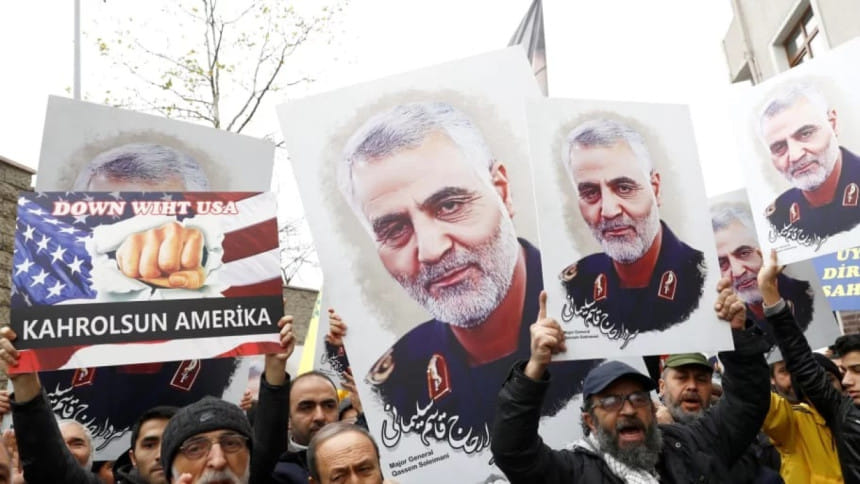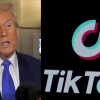Trump may start a war with Iran but can he end it?

Did Donald Trump really mean what he said—that it was to prevent war, and not make one, for which a top Iranian military commander was hit in Baghdad on his instructions? Will it de-escalate the prospect of war, as he claims the assassination was intended to do, or will it lay open an imponderable prospect of a serious conflagration between the US and Iran?
As the NYT says, it is not so much if the extrajudicial killing was justified as whether it is wise to take an action that is dangerously fraught. The Trump tweets (alliteration unintended), which are often nothing better than rantings of an uninformed and injudicious mind, are anything but de-escalatory in content.
Killed along with General Qasem Soleimani in the same drone attack was the deputy head of the Iran-backed Iraqi Popular Mobilization Forces (PMF), a Shia force organised to fight ISIS and recognised by the Iraqi government as an independent military force, a one-time US ally in the fight against ISIS.
It was not the first time that the US has made a so-called pre-emptive or preventive attack, and that too without a shred of evidence, under a US law backed up by the misrepresentation of Article 51 of the UN Charter. The attack on Soleimani was carried out under the same authorisations to, as the Pentagon says, "deter any future Iranian attack plan". Remember the first time the US did so in recent times under this very law? It was on March 20, 2001 when the US attacked Iraq, justifying Operation Iraqi Freedom on manufactured and cooked intelligence and preceded by nearly a hundred excuses posited as justifications for the attack on Iraq, and eventually killing a one-time US and Western ally in the Middle East. Of course, Saddam had no weapons of mass destruction (WMD) at all, neither did he host any Al Qaeda fighters in Iraq.
Soleimani was supposed to have been planning to kill American diplomats and service members in Iraq and throughout the region, and his assassination (for that was what it was) was an act of self-defence, as the US claims. Soleimani, according to the US, was responsible for the deaths of thousands of US servicemen. One could well ask whether the myriad instances of political killings, coups and countercoups, and the countless clandestine actions to destabilise governments that the CIA has been involved in all over the world fit the accusations that the US is now blaming Soleimani for doing.
Obviously, all these are mere rhetoric; the real intention of Trump is to provoke Iran to take precipitate actions offering a direct justification for Trump to hit Teheran militarily and fulfil what he had promised Netanyahu. The killing of the Iranian commander is another of such provocations that had started with the scrapping of the Iran nuclear deal in May 2018.
Predictably, Trump's action has engendered criticisms internationally, including from European leaders. The Democrats call it illegal on the grounds that the US cannot simply go about killing military commanders of a sovereign country. And one may well ask, where are the intelligence and incontrovertible proof that an attack on US soil or interest was unquestionably imminent? Does the justification of self-defence sell with the right-thinking people? Even the Iraqi parliament has condemned the attack, calling it a violation of the country's sovereignty and of international laws. But it is futile to seek a moral or legal justification of the US military action. In fact, one is at a loss to find out if there has been any military venture—major or minor—by the US since the end of WWII that was legal or had UN approval.
General Qasem Soleimani was definitely one of the most powerful Iranian generals. A member of the IRGC and known as Iran's "shadow commander," he had led the Quds Force since 1998, and was reportedly the mastermind of Iranian military operations in Iraq and Syria. The US considered him a thorn on its side and wanted to do away with him to "make the world safe again". The obvious question would be, is it so? Is the world any safer than before January 3, 2020? If that is so, then why is the travel advisory to the US citizens in the region to leave Iraq and the region? Should we understand that the calculous determining the degree of safety for US citizens is different than what it applies in the case of others?
It will do well to remember that killing a leader does neither stem the purpose and the cause he was serving, nor deter any further action on the part of the group that he led, just in the same way as the departure or death of a head of government or the executive president of a country would not interrupt the policies the party in power were following.
One should not rule out a reaction from Iran: what kind and when/where, is uncertain. The time, place and target will be of Iran's choosing. It seems that Trump, in spite of what he would have us believe, wants a war and is bracing for one, too. It is thus pertinent to ask as to what political objective Trump wants to achieve by his war against Iran. And if there is a breakout of war, let there be no doubt that it will not be restricted between the two antagonists only, but will surely involve almost all the countries in the region also.
The US president has tweeted that he has 52 Iranian targets on his sights. And he has made a terrorist-like threat, threatening to wipe out these targets many of which, according to Trump, are of cultural significance to Iran. We do not know what these targets are. But whatever they are, will destroying those meet the US' political objective? Will that make Iran change its policies?
Every military venture the US has involved itself in since the WWII, except for one, has ended in disaster. As Afghanistan and Iraq show, military option is not the solution to a conflict that is enmeshed in a very deep-seated political undertone. Where the objectives are at best nebulous, the outcome of the war is likely to be the kind that we witness in Iraq and Afghanistan. Trump needs to be educated in the self-evident truth that one may start a war but ending it may not be in one's control. And in a war where he may not be able to put together a "coalition of the willing", that will be even more so.
Brig Gen Shahedul Anam Khan, ndc, psc (retd) is a former Associate Editor of The Daily Star.

 For all latest news, follow The Daily Star's Google News channel.
For all latest news, follow The Daily Star's Google News channel. 








Comments